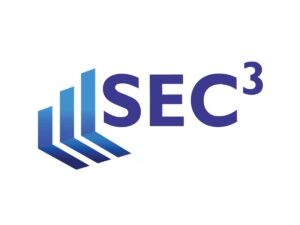Taiwan Proposes Virtual Asset Service Law Draft: Addressing Stablecoins, Ensuring Market Integrity, and Encouraging Innovation

Key Takeaways:
Taiwan is set to introduce a policy framework to regulate virtual assets, marking a significant milestone in integrating crypto into Taiwan’s financial ecosystem. The legislation aims to establish a safe and regulated environment for digital assets, covering key aspects such as licensing, stablecoins, and market manipulation. Industry executives are cautiously optimistic about this regulatory shift, although a fully established legal framework remains uncertain.
Taiwan is making significant strides in formalizing its cryptocurrency industry. The Financial Supervisory Commission (FSC) has recently released a consultation draft of the law for a 60-day public consultation period, a pivotal moment for the island’s approach to digital assets.
Establishing a Foundation: Licensing and Operational Management
The drafted legislation includes key rules aimed at creating a more orderly and secure environment for virtual asset service providers (VASPs) and their investors. One crucial regulation is the requirement for VASP licensing.
This licensing regime is expected to be comprehensive, covering areas such as:
Financial prudence: Capital and stability requirements, as well as risk management.
Internal controls and auditing: Establishment of robust systems to mitigate risk and ensure compliance.
Protection of customers: Policies aimed at safeguarding investors’ assets and data (e.g., clear processes for custody accounts and withdrawals).
Information disclosure: Transparency requirements to provide users with adequate information on VASP risks and operations.
These regulations are designed to ensure that VASPs operate in a highly professional and accountable manner to protect consumers and instill confidence in the digital asset marketplace.

The Regulation of Stablecoins and Market Integrity
The draft law also addresses the increasing significance of stablecoins, digital assets designed to maintain a stable value relative to a traditional currency or asset. The proposal outlines a framework for issuing stablecoins, including licensing requirements and ongoing supervision.
In addition to licensing and stablecoins, the Virtual Asset Service Law aims to combat fraudulent activities and market manipulation within the crypto market. The law will prohibit virtual asset fraud and manipulation and introduce an audit system to monitor the market.
Embracing Innovation and Navigating Challenges
While the “Virtual Asset Service Law” provides a comprehensive regulatory framework, it also acknowledges the importance of fostering the competitiveness of the crypto industry. Regulatory sandboxes will enable the testing of crypto products.


However, integrating crypto into the traditional financial system presents some challenges that regulators must carefully navigate. Finding the right balance between regulation and innovation is crucial, as overly strict regulations could hinder the sector and drive innovation elsewhere.
Additionally, the global nature of crypto poses unique regulatory challenges. International cooperation is essential to combat crypto-related crimes. One advocate for regulatory alignment is Brian Armstrong, CEO of Coinbase, who emphasizes the need for international collaboration to ensure consistent crypto regulations across jurisdictions.
An Attitude Change Celebrated by Industry Leaders
The proposed comprehensive regulation of crypto in Taiwan has been well received by industry leaders who have faced regulatory ambiguity for the past four years. At a recent Crypto Inaugural Ball in Washington, D.C., attendees expressed optimism about clear and permanent legislation providing regulatory clarity for the crypto industry.
Meme coins have sparked debate over their role in crypto, with some dismissing them as trivial while others recognize their potential in the broader crypto landscape. Innovation can be playful, but engaging in financial play at the consumer level without robust regulations comes with a consumer protection warning.
A Future Outlook: Could it Become the Crypto and Blockchain Hub of Asia?
Taiwan’s crypto-friendly approach could attract crypto service providers and solidify its position as a key player in the Asian market. Taiwan aims to create a regulated crypto environment that encourages investment and innovation.
However, the success of Taiwan’s crypto ambitions will depend on striking the right balance between regulation and innovation, as well as collaborating closely with other jurisdictions to address the challenges posed by digital assets.
The Financial Supervisory Commission (FSC) stated that the draft will be submitted for review by the Executive Yuan by the end of June 2025.
More News: Is China Quietly Building a Strategic Bitcoin Reserve to Challenge the US?
Source link
#Taiwan #Proposes #Draft #Virtual #Asset #Service #Law #Covering #Stablecoins #Market #Integrity #Navigating #Innovation





